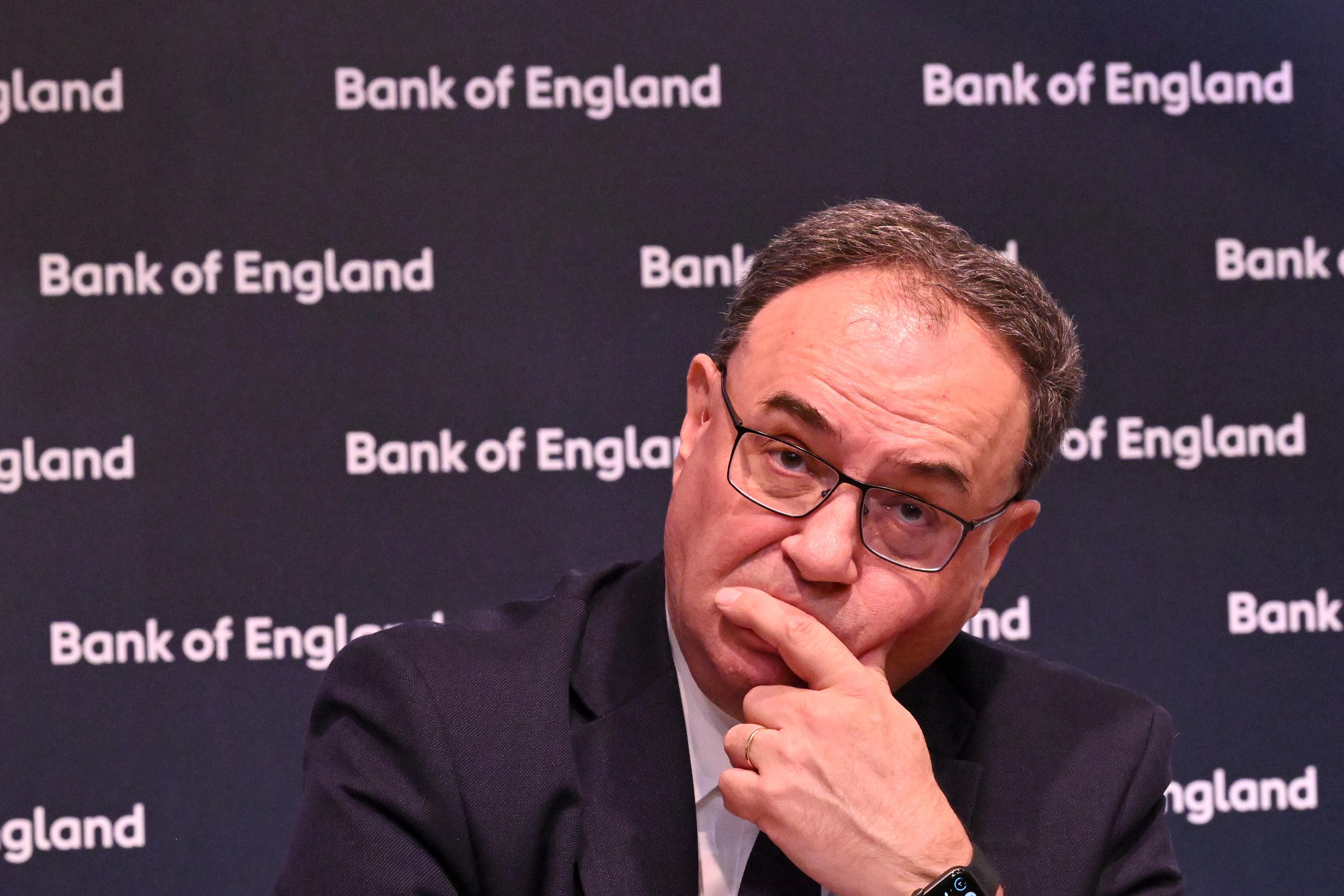Why Andrew Bailey’s remark on prices has raised eyebrows
As an attempt at moral suasion it doesn’t even make sense, says Sean O’Grady


The governor of the Bank of England, Andrew Bailey, has urged companies to try to help beat inflation by not raising their prices. “When companies set prices I understand that they have to reflect the costs that they face,” he said. “But what I would say, please, is that when we are setting prices in the economy and people are looking forwards, we do expect inflation to come down sharply this year, and I would just say please bear that in mind.” Such a forthright intervention came as a bit of a surprise.
Does it count as a gaffe?
Not as such. The term central bankers prefer is “moral suasion” – an attempt, by appeal to reason, logic and the national interest, to encourage economic actors to “do the right thing”. Of course, the “game theory” flaw is that keeping your own prices low, while competitors are able to raise theirs, means losing out. Governments and their central banks sometimes use moral suasion as a first resort in dealing with economic problems. It could work in societies where there is a famously strong sense of social cohesion, as in Japan or Sweden. In more individualistic, ie selfish, countries such as the UK, such calls of duty get ignored, if not derided.
What did Andrew Bailey actually mean?
As an experienced and thoughtful economist, he probably does not subscribe to the view that businesses are profiteering. He could not sensibly believe that supermarkets and other consumer-facing firms have suddenly become evil, price-gouging monsters and taken advantage of generally rising prices to ramp up their profits. For that to be true it would imply that, during the long period of stable prices and steady growth from the early 1990s until about 2008, private enterprise was a model of moral goodness.
There’s no reason to believe that retailers are profiteering more or less than they ever were. Only unregulated monopolies and oligopolies enjoy the luxury of being able to set prices and fees as they please, and even then, only in benign economic conditions.
What he was really asking was that companies absorb rising costs by cutting their profit margins, thus avoiding passing on the higher costs they are facing for wages and raw materials to consumers through higher prices. In taking the suggested course of action, they would help to dampen the incipient wage-price spiral that can be glimpsed in the latest core inflation figures. If companies have to do this for any length of time, it hurts their competitiveness, profits, and ability to invest.
Has he done this before?
A bit. Last year he was urging workers and trade unions to exercise pay restraint – a spectacularly unsuccessful plea, as wave after wave of strikes hit the economy. As far back as February 2022, when the labour market began to stir back to life post-pandemic and post-Brexit, Bailey was saying: “I’m not saying nobody gets a pay rise, don’t get me wrong. But what I am saying is, we do need to see restraint in pay bargaining, otherwise it will get out of control ... I’m not saying don’t give your staff a pay rise; this is about the size of it, frankly. Show restraint.” For his pains, Bailey was slapped down by Downing Street, and – probably wisely given the political sensitivities – has since refrained from dishing out advice to bosses and unions about pay negotiations.
Aren’t central bank governors meant to refrain from speaking out?
Since the Bank’s foundation in 1694, this has been the convention – but in recent years, governors have become more outspoken, while always avoiding party politics. Mervyn King (2003-13) had good reason to be rude about the way bankers behaved in the run-up to the global financial crisis. He shared public anger about the cost of the bank rescues and the recession that followed the crisis, adding that people were “entitled to be angry”. His distaste for everything from “excessive levels of compensation to shoddy treatment of customers to the deceitful manipulation” was widely accepted.
Mark Carney (2013-20) was even more adventurous, speaking out about “staggering” economic inequalities, and criticising Brexit both before and after the EU referendum in 2016. Bailey has been more circumspect on that topic, even as its baleful effects have continued to reverberate through the economy. This time he seems not to have upset the Treasury or Downing Street.



Join our commenting forum
Join thought-provoking conversations, follow other Independent readers and see their replies
Comments